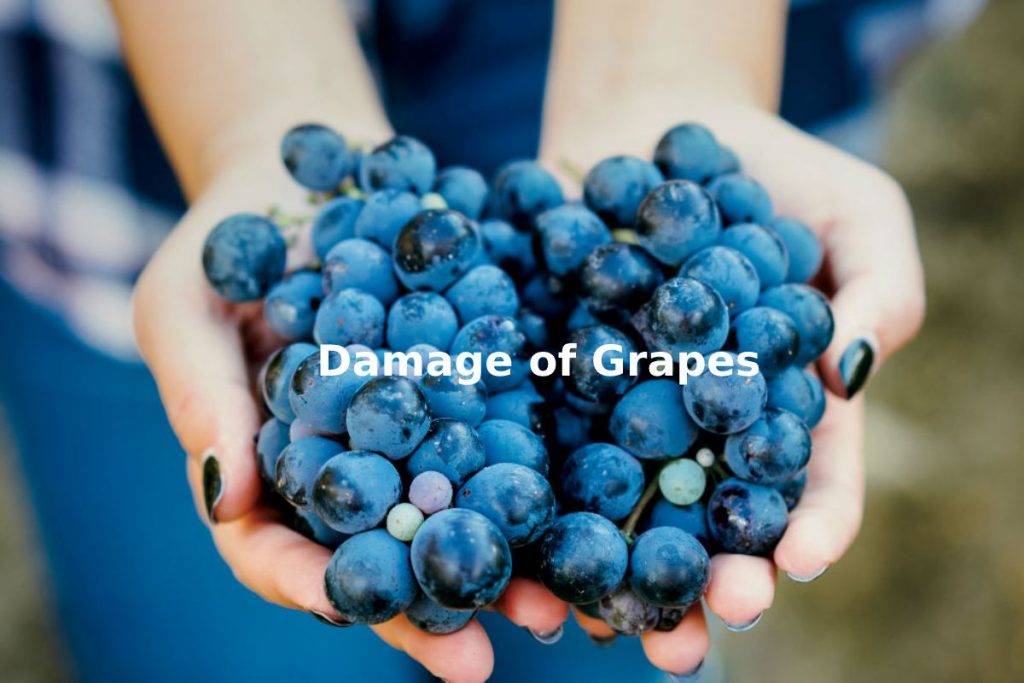Table of Contents
Introduction
Damage of Grapes – The benefits of grapes are numerous and varied, but grapes may also have damage to know, so what are the damages to grapes? important information and details await you in the following article:
Pharmacological Interferences
Eating grapes can hurt the health status of patients taking certain medications, such as:
Beta Inhibitors
Beta inhibitors are medications commonly prescribed to resist certain types of heart disease, and these drugs may cause high potassium (k) levels in the blood.
Because grapes contain a good level of potassium, excessive grape eating in conjunction with these drugs can lead to unhealthy potassium rise.
Blood Thinners
Grapes contain resveratrol and good vitamin K ratios, which can increase blood thinners and pose a risk to the health of patients who are initially taking blood-free medications, such as Warfarin.
Blood thinners increase blood thinners, so taking them in conjunction with excessive intake of grapes can compound the effect of these medications, which can have serious health consequences.
Allergies
Although allergies to grapes are not common, they are common, as eating grapes or even touching their fruits can cause allergic reactions to some, which may be embodied as:
Minor or moderately sharp symptoms, such as urticaria. And red spots on the skin.
Severe symptoms, such as difficulty breathing and anaphylactic shock.
Sometimes allergic reactions may appear as a reaction to certain additives found on grapes or within their fruits. Such as pesticides and mould.
Kidney Problems
One of the possible damages of grapes is that taking excessively may damage the kidneys. In addition, grapes contain a good amount of potassium metal in some instances. And excessive potassium sources may cause health complications for people initially infected with kidney problems.
If the kidneys are so damaged that they cannot rid the body of excess potassium, potassium may accumulate in the body, causing potentially fatal complications.
The Risk of Choking for Children
One of the potential damages of grapes is that eating their grains can cause asphyxiation, especially when consumed by children under 5. The risk is high when feeding grapes to children between the ages of 6 and 12 months. This group may be at risk of suffocation when eating any unseated type of vegetables and fruits.
It can be hard for children at this age to eat grapes safely, given the size of small grapes that may make them easy to swallow completely. As well as the dimensions of a grape may make them able to close the respiratory tract perfectly if they happen to be consumed completely.
Gut Problems
Grapes contain substances that may cause digestive disorders, such as:
Salicylic acid: These disorders may cause digestive disorders, which may appear as inflammation of the gut, puff or even diarrhoea.
Dietary fibre: grape fibre content can cause digestive disorders such as diarrhoea, especially when taken excessively or by people with irritable colon syndrome.
Sugar: grapes may contain sugars that may stimulate diarrhoea in some.
Grapes within the fruits can also cause other problems in the gut. Such as appendicitis and severe abdominal pain.
Further Grape Damage
This fruit may have further damage, such as:
Food poisoning: grapes are among the most contained fruits on pesticide residues.
Overweight: grapes contain many calories, so eating them excessively and regularly can cause weight gain.
Bleeding: grapes can cause increased blood thinners, increasing the chances of bleeding or bruising in people with haemorrhage disorders and diseases.
How to Avoid Grape Damage
potential grape damage can be avoided by applying the following recommendations:
Eat grapes in moderate and reasonable quantities without excessive.
Avoid giving whole grapes to children under the age of 5, and be careful to cut these pills well before feeding this grape category.
Take care to eat only organic grapes, i.e. grapes that have not been exposed to pesticides during cultivation or exposed to only very few amounts of them.
Consult your doctor first about the dose allowed to be taken from grapes by patients taking certain medications. Such as beta inhibitors and blood thinners.
Avoid eating grapes on an empty stomach if you initially have irritable colon syndrome.
Avoid eating grapes entirely by those with an allergy to them.
Benefits of Grapes
After addressing the potential damage of grapes, we should also address its benefits, which can be gained if grapes are eaten moderately by the categories allowed to eat grapes. here’s a profile of the potential benefits of grapes:
Improve the immune system’s ability to resist many different diseases and infections.
Resistance to oxidative stress may reduce the chances of many cancers developing.
Lower cholesterol, lower blood pressure and ward off some heart disease.
Maintain brain health and reduce the chances of developing certain nerve diseases. Such as Parkinson’s disease and Alzheimer’s disease.
Reduce the chances of developing diabetes.
Bone-strengthening.
Resistance to skin ageing.
Also Read: How to Burn Belly Fat?
